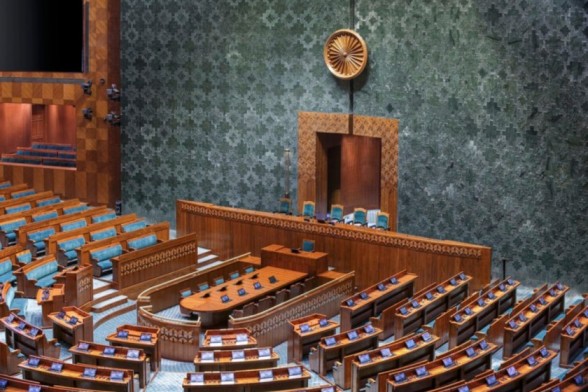- April 19, 2024
Rhythm of reform: Charting India’s corporate future amid political drumbeats

The drumbeats heralding general elections resound loudly, their echoes reverberating through the far reaches of India’s corporate landscape. All eyes are fixed on the impending polls as business entwines with politics and power.
The predominant political party has unveiled its ambitious agenda, maintaining a steadfast focus on financial micro stability – a pivotal objective carrying significant implications.
Central to this agenda is the revitalization of the manufacturing sector, aimed at propelling India into the spotlight as an emerging manufacturing hub. Plans are underway to establish global centers for emerging technologies such as EVs and semiconductors, signalling a transformative vision for the nation’s economic landscape. Vikas Ralhan, CFO of LocoNav, underscores the necessity of prioritizing key reforms to solidify India’s global manufacturing standing. “This includes accelerating the shift to affordable renewable energy, upskilling the workforce for automation, and enhancing financial and insurance support for small and medium enterprises – the backbone of India’s growth story,” says Vikas.
Praising Vikas for his views on SMEs, Deepak Kumar Jain, CFO, Jesons Industries asserts, “The government must place greater emphasis on banking reforms and extend more credit to MSMEs as well as the rural sector.” “Furthermore,” Deepak adds, “administrative policies warrant an overhaul to streamline processes and stimulate growth.”
Besides, amidst a backdrop of occasional optimism shrouded in uncertainty, the run-up to the election is already seeing substantial strides in trade, investment, and security measures.
A lot is at stake this time as India clamours for change. The Indian economy stands in a far more robust position than it did two years ago when anxiety gripped emerging markets, and India found itself among the vulnerable “fragile five” economies susceptible to currency runs and stock market tumult. During that time, both the Indian government and the central banks acted prudently.
Still, many pin their hopes on the ability of the incumbent ruling party, if not both leading political factions, to boost the economy through their connections with corporate giants.
While the incumbent ruling party holds promise for economic revitalization through its corporate ties, challenges persist for businesses, particularly concerning taxation regulations. “Government should simplify the tax structure and make it easily comprehensible,” says Sridhar Guduthur, CFO at HSTP by Tata Trusts.
Others continue to grapple with challenges related to land acquisition, rigid labour laws, inadequate intellectual property enforcement, and sluggish judicial processes. Business disputes in India often endure for nearly four years before contractual resolutions are reached, ranking among the slowest globally according to the World Bank.
Prospective investors in India seek further enhancements in the ease of doing business within the country. “Streamlining the ease of doing business should be a top priority to capitalize on increased FDI inflows,” adds Vikas. Echoing his sentiments, Sridhar adds, “The incoming government should nurture an environment where corporates feel assured and empowered, free from undue governmental constraints.”

Shivani Srivastava
Shivani is a Senior Editor at CFO Collective. Her passion lies in engaging with senior finance leaders to delve into topics such as AI, technology, corporate finance, and sustainability, extracting invaluable insights that she transforms into enriching material for the CFO community.
